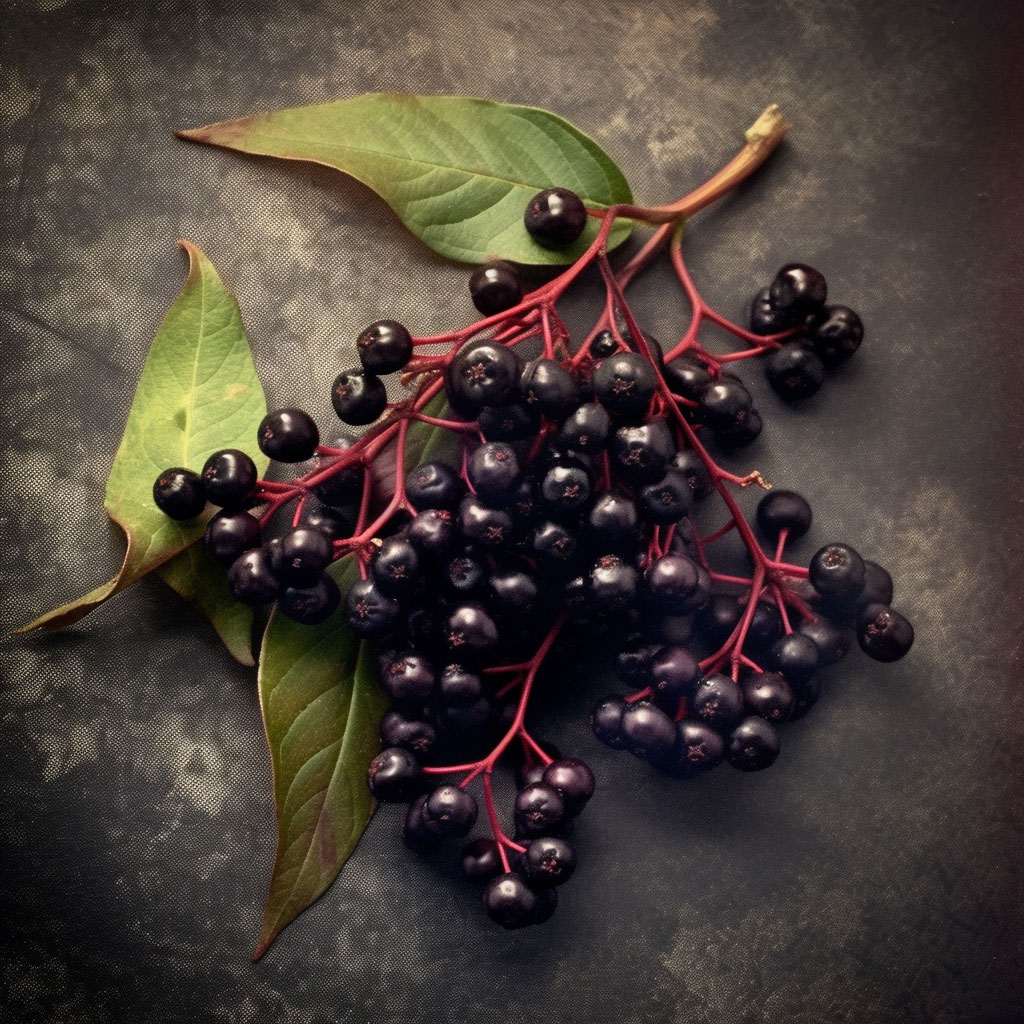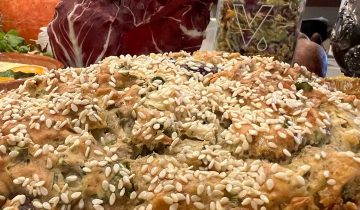Elderberry, also known as Sambucus, is a fruit rich in antioxidants and widely recognized across Europe and North America. Growing up my family used the dried elderflower for teas internally to assist with colds and flues but also a tonic to clean babies eyes with conjunctivitis and my Goodness it actually worked and fast.The ancients also believed that the dried fruit could alleviate pain, reduce swelling and inflammation, stimulate urine production, induce sweating, and even act as diuretics, laxatives, and emetics.
The medicinal use of elderberries goes back thousands of years. Ancient Egyptians used it to heal burns, while in ancient Greece, the renowned physician Hippocrates referred to elderberry as a versatile remedy for treating numerous ailments. Native American cultures utilized elderberries to combat infections, and the Anglo-Saxons and Danish considered the plant sacred, attributing mystical powers to its flowers and berries, which they associated with a goddess named Hylde More.
In traditional folk medicine, dried elderberries were used to make medicinal juices to address conditions such as influenza, infections, sciatica, headaches, dental pain, heart pain, and nerve pain. It was also valued as a natural laxative and diuretic.
The rich historical and cultural significance of elderberry highlights its enduring reputation as a powerful natural remedy. Today, this superfood continues to captivate attention due to its diverse health-promoting properties.
Did you know that elderberry is not only effective against the flu but also shows promising anti-cancer properties? Studies conducted on rats have revealed that elderberry’s polyphenols can increase the count of white blood cells, thus bolstering the immune system and aiding in the fight against pathogens Elderberry has been found to inhibit the growth of harmful bacteria called Helicobacter pylori, which can worsen symptoms of bronchitis and sinusitis. Moreover, elderberry skincare products have a natural sun protection factor (SPF) of 9.88, adding an extra benefit to its repertoire.
Elderberries are packed with powerful antioxidants called anthocyanins, which have beneficial effects on our health. Researchers conducted a study to investigate the effects of elderberry extracts from two Canadian cultivars, ‘Kent’ and ‘Scotia’, on brain tumor cells and brain microvascular endothelial cells. They found that elderberry extracts, especially from the berries, inhibited the growth of these cells in a dose-dependent manner. The extracts caused cell cycle arrest and induced cell death through apoptosis. The presence of anthocyanins and rutin in the extracts played a significant role in their antiproliferative effects. This study provides the first evidence that Canadian elderberry extracts could effectively target both the cancerous cells and the blood vessels associated with brain tumor development, which is particularly important considering the hypoxic (low oxygen) conditions found in these tumors that contribute to therapy resistance.
As reported by Vision Times, researchers have discovered that the phytochemicals present in elderberry juice demonstrate remarkable effectiveness in blocking the flu virus from infecting cells. The serum derived from elderberry exhibits potent activity in inhibiting the development of the virus during later stages of the influenza cycle. This finding suggests that the serum has a higher likelihood of preventing flu infection.
According to Professor Fariba Deghani, the director of the research center, the elderberry solution not only possesses these properties but also has the ability to stimulate cells to release specific chemical messengers called cytokines. These cytokines act as communication signals within the immune system, facilitating a coordinated and more effective response against the flu virus. Additionally, the serum derived from elderberry demonstrates increased potency in inhibiting the virus during the later stages of the influenza cycle, indicating a higher probability of successfully preventing flu infection.
During my search for potent healing foods and plants to support my little one’s recovery, I discovered the remarkable benefits of elderberry and elderflower. Incorporating these plants into our daily routine proved to be highly beneficial. Not only did they strengthen his immune system, but I also witnessed the cleansing effect they had on his body, aiding in the removal of pharmaceuticals.
After my little one’s surgery, I turned to elderflower for gentle eye cleansing, ensuring his eyes stayed moist and free from debris. To support his immune system, we regularly prepared elderberry syrup and enjoyed elderberry tea. Although Ziggy has made a full recovery, we continue with these natural remedies as part of our routine. We value the nutrient-rich properties of these remedies and prefer them over synthetic alternatives. Maintaining this practice contributes to the overall well-being of our family.
As a mother and caregiver, I find creating homemade plant medicine empowering and fulfilling. Witnessing the positive results from these natural remedies is incredibly rewarding. It reinforces the belief that we are taking an active role in our family’s health and well-being.
Elderberry Syrup Recipe:
Ingredients:
1 cup dried elderberries
4 cups water
1/2 cup honey (preferably raw)
Optional additions: cinnamon stick, cloves, ginger, cayenne pepper and for Ziggys one i also added mistletoe ( article coming soon with science on this gem)
In a saucepan, combine the elderberries and water.
Bring the mixture to a boil, then reduce the heat and let it simmer for about 30-40 minutes until the liquid has reduced by half.
Remove the saucepan from heat and allow it to cool slightly.
Use a fine-mesh sieve or cheesecloth to strain the liquid into a bowl, pressing gently to extract as much liquid as possible.
Discard the elderberry solids and let the liquid cool further.
Stir in the honey until well combined.
Optional: If desired, add a cinnamon stick, cloves, or ginger to infuse additional flavors.
Pour the syrup into a clean glass jar or bottle and store it in the refrigerator.
It can be stored for several weeks.
Elderflower Tea Recipe:
Ingredients:
2 tablespoons dried elderflower (or 4 tablespoons fresh elderflower)
2 cups hot water
Optional additions: lemon, honey (to taste)Instructions:
Place the dried or fresh elderflower in a teapot or heat proof container.
Pour the hot water over the elderflower.
Cover the container and let it steep for about 10-15 minutes.
Strain the tea to remove the elderflower solids.
If desired, add a squeeze of lemon juice or honey to enhance the flavor.
Pour the elderflower tea into cups and enjoy it warm.
These recipes allow you to incorporate the goodness of elderberries and elderflowers into your daily routine, supporting your overall well-being.






 No products in the cart.
No products in the cart. 